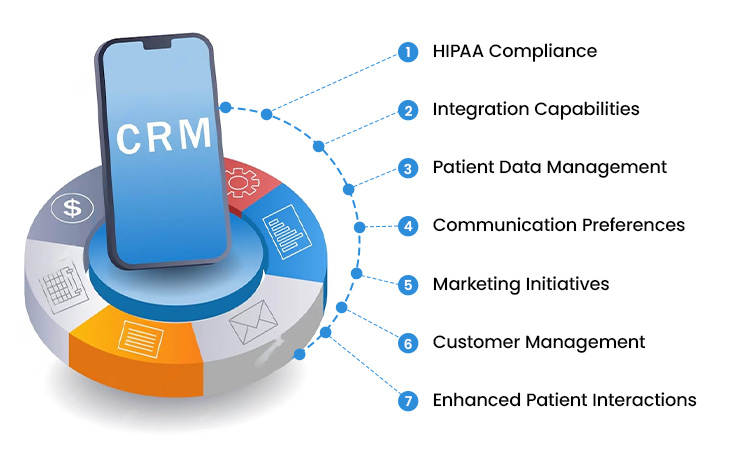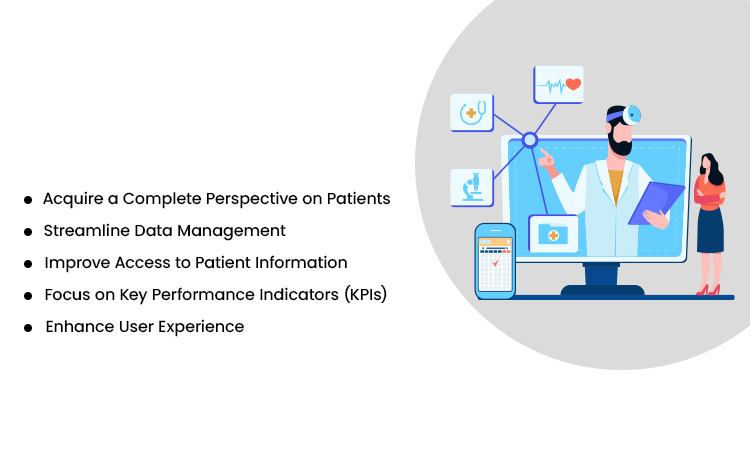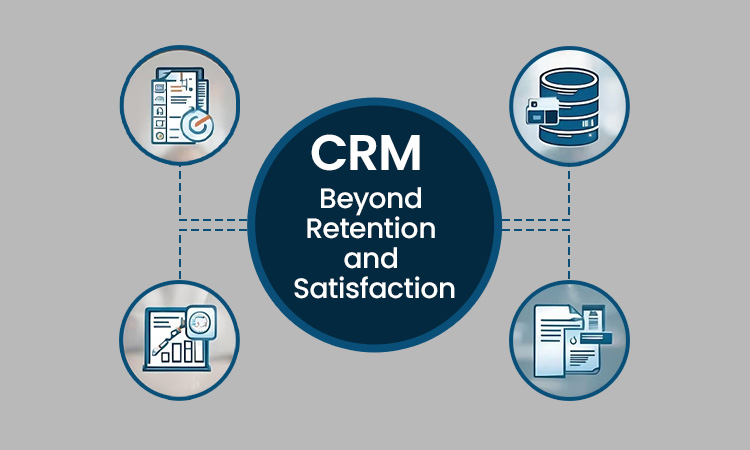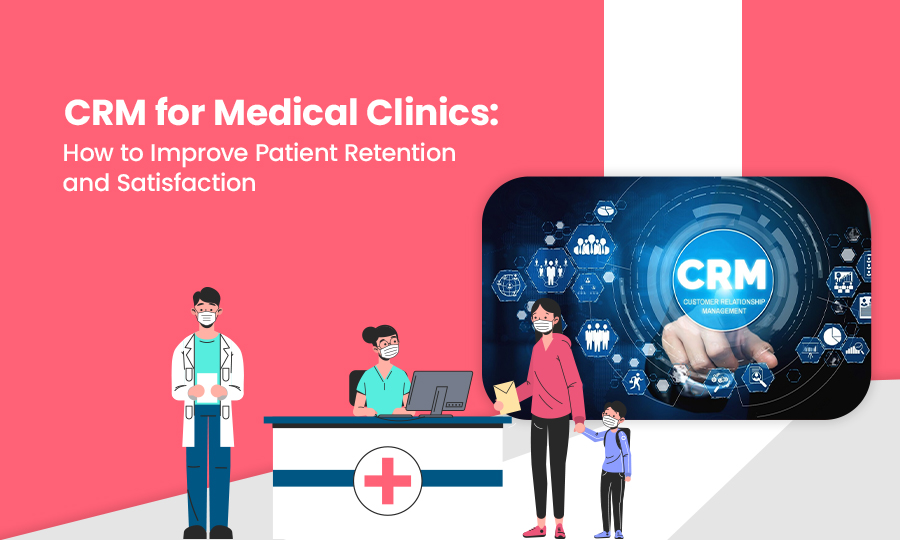Have you ever wondered how prestigious medical clinics maintain their high standards of treatment while attracting new patients? You might be surprised to learn that their CRM (Customer Relationship Management) system, with a healthcare twist, is their hidden weapon! Imagine it as the digital nervous system of your clinic, seamlessly and precisely connecting each patient touchpoint.
The days of playing phone tag with patients or becoming bogged down in paperwork are long gone. With advanced CRM systems that do far more than simply record contact information, modern medical clinics are revolutionising patient care. We’re referring to intelligent tools that can anticipate when your patients’ checkups are due, remember their birthdays, and even identify possible health dangers before they become major problems.
The problem is that not all healthcare CRMs are made equally. Having the correct CRM can make the difference between a successful clinic and one that is barely scraping by in a world where patient expectations are rising and medical practices are vying for patients’ attention. Are you prepared to learn how CRM may transform your medical practice? Let’s get started!
What is CRM in The Context of Healthcare?
In the healthcare industry, CRM (Customer Relationship Management) aims to handle patient interactions and enhance care. Unlike standard CRM tools, healthcare CRM systems are designed for healthcare providers and professionals to handle patient relationship management effectively. These systems simplify patient data management, including patient records, designation, and communication, improving the overall patient engagement experience. With healthcare CRM software, healthcare organizations and providers can customize care, track wellness history, and improve workflow. Designed specifically for healthcare practice, these tools ensure effortless management of patient data while maintaining trust. Thus, CRM for healthcare empowers vendors to build stronger connections and provide better findings.
Why Patient Retention and Satisfaction Matter in Healthcare?
Patient retention and satisfaction are essential for healthcare organizations. Did you know that patient churn can cost medical practices thousands annually? A healthcare CRM, like Salesforce Health Cloud, can help. Healthcare professionals benefit from healthcare CRM solutions for patient management and give them the best experience. CRM for healthcare streamlines operations improves patient care and enhances healthcare-customer interactions effectively.
You can regulate patient data, medical history, and patient communications, it ensures individual care. Satisfied patients stay loyal, improving long-term retention and reducing costs. CRM solutions also integrate with electronic health records to simplify workflows and enhance patient care.
Moreover, marketing automation helps healthcare customer relationship management to engage patients better. Putting money into the best healthcare customer relationship management crm software increases patient satisfaction while improving operations. The healthcare industry leverages healthcare CRM and medical CRM software for seamless patient management. In the healthcare industry, customer interaction management improves patient experiences, expedites processes, and guarantees superior results.
Use good customer service techniques to advance your medical practice!
Come, let’s explore how CRM can improve the experience of healthcare and how you can utilize CRM
What are the Features of CRM in Healthcare Organizations?

In the healthcare industry, implementing a Healthcare CRM system is essential for enhancing healthcare delivery and fostering strong patient care.
- HIPAA Compliance: Assures the secure handling of patient data, preserving integrity and adherence to legal standards. Medical CRM ensures HIPAA compliance, protecting sensitive patient data. It supports personalised care by improving healthcare processes, improving client interactions, and enhancing overall healthcare interactions for both providers and patients.
- Integration Capabilities: A reliable healthcare CRM software seamlessly integrates with existing healthcare operations systems, such as EMRs, billing systems, and appointment schedulers. This allows for a more efficient workflow by eliminating the need for traditional data entry and reducing the risk of errors. Additionally, integration capabilities ensure that all patient information is centralized and easily accessible across different platforms.
- Patient Data Management: Patient conversations and histories can be tracked more effectively with the help of automated healthcare data management and storage. This technology allows healthcare providers to access patient information quickly and accurately, leading to more efficient and personalized care. Moreover, automated data management systems can help reduce errors and improve overall patient outcomes.
- Communication Preferences: Personalized outreach based on specific communication preferences improves patient relationships. Patients appreciate when healthcare providers take the time to understand their communication preferences and tailor outreach accordingly. This personalized approach can lead to better engagement and overall satisfaction with their care.
- Marketing Initiatives: Specific campaigns to attract and retain patients, improving the healthcare business. These initiatives can include social media advertising, email marketing, and community outreach events. Moreover, by targeting the right audience and providing valuable information, healthcare businesses can increase patient engagement and loyalty.
- Customer Management: Modernizes management tasks, ensuring efficient communication between departments and improving healthcare organization workflows. Advertising initiatives, powered by healthcare CRM and healthcare CRM, drive specific campaigns. CRM for medical clinics helps attract and retain patients, boosting engagement and improving the overall healthcare business effectively.
- Enhanced Patient Interactions: Healthcare CRM systems can help improve patient engagement. Healthcare CRM analyses data to produce actionable insights that facilitate meaningful patient interactions and individualised care. Stronger patient-provider connections and better healthcare outcomes are the eventual results of these systems’ improved communication and streamlined procedures.
Moreover, a CRM for medical clinics optimizes scheduling, supports targeted advertising initiatives, and helps the healthcare industry improve overall healthcare delivery efficiency. Through both patient and operational needs, healthcare CRM software empowers organizations to provide exceptional care.
How to Build a Patient-Centric Strategy with CRM?

Developing a patient-centric strategy is vital for improving healthcare treatment and encouraging better patient engagement. A strong CRM system plays a critical role in this process.
Here’s how:
- Acquire a Complete Perspective on Patients
Make use of an online platform to simplify managing patient information, including medical records, patient predilections, and individual tendencies. A comprehensive view ensures your staff recognizes patient needs and delivers personalized care. The healthcare industry gains from healthcare CRM by simplifying patient information management. CRM for healthcare offers appointment reminders, enhancing patient acquisition and ensuring better interaction between healthcare professionals and patients for improved care.
- Streamline Data Management
Minimize errors by eliminating manual data entry with automated tools in the CRM. Integrating patient portals allows patients to update their information, ensuring precision and reducing administrative workload. Analytics and reporting tools safeguard sensitive patient data while enhancing patient engagement. Features like appointment reminders improve patient communications, supporting patient acquisition and ensuring seamless interactions for better healthcare outcomes.
- Improve Access to Patient Information
A CRM provides real-time access to a patient’s medical history, helping clinicians make informed decisions. This cooperation supports effortless operations across healthcare facilities and improves care coordination. Medical CRM software integrates marketing automation to streamline patient communications and manage patient information. These CRM solutions enhance the patient experience, ensuring efficient healthcare delivery and improved provider-patient relationships.
- Focus on Key Performance Indicators (KPIs)
Determine and track key performance indicators such as patient satisfaction, scheduled adherence, and treatment findings. A data-driven approach allows your clinic to continuously refine its processes.
- Enhance User Experience
Choose a CRM with a user-friendly interface to ensure easy implementation by both patients and staff. This simplifies engagement and promotes better application of CRM capabilities. HIPAA-compliant systems ensure the protection of sensitive patient information. By offering personalized care, these solutions improve patient experiences while maintaining HIPAA compliance, fostering trust and enhancing healthcare administration.
CRM Beyond Retention and Satisfaction: 4 Hidden Benefits

While CRM systems are widely recognized for enhancing patient retention and satisfaction, their true value extends far beyond these primary goals. Here are some hidden advantages that transform the way clinics operate:
- Improved Operational Efficiency
Workflows are streamlined and administrative overhead is greatly decreased with a strong medical clinic CRM. Staff members can concentrate on patient care thanks to features like automated appointment scheduling, billing, and follow-up reminders. Additionally, minimizing manual data entry through integration with patient portals ensures accurate, real-time updates to medical records, leading to smoother operations and fewer errors.
- Compliance and Data Security
Maintaining adherence to rigorous regulations such as HIPAA and GDPR is crucial for clinics. Advanced healthcare CRM software offers built-in tools to ensure compliance by safeguarding patient data and preventing unauthorized access. With the help of cloud-based platforms and automated audit trails, CRMs lower the risk of non-compliance or breaches. Healthcare software with a user-friendly interface and key features assures seamless operations.
- Enhanced Care Continuity
CRMs provide a comprehensive view of each patient’s voyage, enabling effortless moves between doctors or departments. For instance, detailed patient trends and records ensure all providers are conscious about the patient’s medical history, improving cooperation across healthcare facilities and ensuring coherent, high-quality care.
- Hidden Insight: Outreach Programs
An often-overlooked benefit of CRMs is their ability to support healthcare outreach programs. By examining key performance indicators and population data, clinics can locate and target neglected communities. This empowers them to create designed programs, address gaps in healthcare delivery, and promote inclusivity, thereby achieving broader public health goals. Specifically, HIPAA-compliant protects patient data while offering tools to increase efficiency, simplify workflows, and improve general healthcare management and delivery.
Overcoming Barriers to CRM Adoption in Medical Clinics
Adopting a CRM for medical clinic systems can significantly enhance patient management and improve operational efficiency.
However, several challenges can hinder its successful implementation.
Common Challenges
- Resistance to Change: Many healthcare professionals may be reluctant to adopt new systems due to familiarity with existing processes. It will need appropriate training and unambiguous communication about the advantages of the new CRM system to overcome this opposition.
- Budget Constraints: The initial investment in healthcare CRM software can be a barrier, especially for small healthcare providers. Budgetary constraints could raise questions regarding the return on investment of putting a new system in place.
Hidden Barriers
- Misalignment Between CRM Features and Clinic Workflows: If the CRM system’s functions do not correspond with the particular needs of the healthcare practice, it may result in inefficiency and displeasure. For example, if a CRM for healthcare lacks cooperation with existing applications or doesn’t support proper patient data management, it can interfere with daily operations.
- Limited Understanding of Data Analytics by Staff: Many healthcare organizations are unable to harness the potential of CRM-generated patient data. Without staff instruction in data analysis, useful insights from patient interactions and patient records may be underused.
Solutions
- Implementing the healthcare CRM solution gradually is preferable to completely revamping systems all at once. To provide a more seamless transition, begin by incorporating features that complement existing workflows.
- Comprehensive Training: You can equip healthcare providers and staff with the expertise and tools required to understand patient engagement and CRM. Focus on instructing them to analyze patient outcomes and improve patient relationship management.
Medical clinics can better integrate healthcare CRM systems, enhancing patient outcomes and improving overall patient data governance.
Future Trends in Healthcare CRM
As the healthcare industry continues to evolve, CRM systems are becoming more sophisticated, incorporating advanced technologies that transform patient care and clinic operations.
- AI-Driven CRM Tools
One of the most impactful trends is the rise of AI-driven CRM tools. Predictive analytics allow healthcare organizations to predict patient needs, optimize appointment scheduling, and provide specific care at scale. Analyzing patient data from prior interactions, these tools predict future health events and suggest designed treatment plans. This leads to more proactive care and better patient outcomes, identifying risks before they become critical.
- Telehealth Integration
The increasing popularity of telehealth services has made it vital for healthcare CRM software to work seamlessly with remote care models. Linking CRM systems with telehealth platforms enables clinics to manage both in-person and virtual visits from a single interface. This cooperation ensures a unified interaction for patients and allows healthcare providers to track patient interactions regardless of the care setting. The hybrid care model, enabled through CRM for healthcare, improves ease and availability for patients while also improving clinic workflows.
- Hidden Trend: The Rise of Conversational AI (Chatbots)
A hidden trend in healthcare CRM systems is the growing use of conversational AI, such as chatbots, to perform routine tasks. These AI-powered assistants can answer patient inquiries, schedule designations, and provide medication reminders, enhancing patient engagement and reducing administrative workloads. As healthcare providers strive to deliver quicker, more responsive care, chatbots can bridge the gap by offering instant support, especially beyond regular office hours.
The future of healthcare CRM lies in AI-driven tools, telehealth cooperation, and conversational AI. These innovations are altering how clinics interact with patients and manage care, driving better patient management, action, and overall healthcare delivery.
Making CRM Work for Your Clinic
When selecting a CRM for your clinic, it’s essential to prioritize features that will enhance both operations and patient care.
Features to Prioritize:
- Scalability: Choose a CRM system that can grow with your healthcare practice. As your clinic expands, the CRM should accommodate increasing patient volume and additional features without compromising performance.
- Security: Ensure that the CRM offers robust data security measures, especially in compliance with healthcare-specific regulations such as HIPAA and GDPR, to safeguard patient data.
- Customization: The CRM should be customizable to meet the specific needs of your clinic, whether it’s pediatric, geriatric, or general care. This includes tailoring workflows, dashboards, and reporting to fit your processes.
Hidden Tip: Vendor Support for Healthcare-Specific Regulations
It’s crucial to evaluate the vendor’s support for healthcare-specific regulations. Make sure the CRM is built to meet the unique compliance and security needs of the healthcare industry.
Checklist for Decision-Making
Before committing to a CRM, ask:
- Does it integrate well with existing EHR and practice management software?
- Is the user interface intuitive for both staff and patients?
- What support options are available, especially during implementation?
- How does the CRM handle patient engagement and communication predilections?
By carefully evaluating these factors, you can choose the best healthcare CRM software to enhance both your clinic’s efficiency and patient experience.
Frequently Asked Questions
CRM in a clinic refers to “Customer Relationship Management,” a system used to manage patient communication, streamline operations, enhance communication, and improve overall patient care and satisfaction.
The best healthcare CRM solutions include Salesforce Health Cloud, athenahealth, Kareo, DrChrono, and Practice Fusion for medical practices.
CRM expenses refer to the costs associated with implementing, maintaining, and upgrading CRM software, including licensing, training, support, and infrastructure for managing customer data and interactions.
Several CRM systems are HIPAA-compliant, including Salesforce Health Cloud, HubSpot, Zoho CRM, and Microsoft Dynamics 365, ensuring the protection of sensitive patient data in healthcare settings.
CRM in medical billing refers to systems that manage patient relationships, streamline billing processes, track payments, and improve communication, enhancing both patient satisfaction and financial efficiency.
Final Takeways
Adopting a CRM for a medical clinic is about more than simply staying current with technology; it’s about transforming how you interact with and treat your patients. As we’ve discussed, the correct CRM system may turn your practice from a conventional healthcare provider into an efficient, patient-focused healthcare centre.
Keep in mind that a successful CRM deployment takes time. This is a journey that calls for meticulous preparation, employee support, and a dedication to ongoing development. However, the benefits—better health outcomes, a more involved healthcare team, more patient happiness, and simpler operations—make the costs worthwhile.
Your CRM will be your dependable guide as healthcare continues to develop, from AI-powered insights to telehealth integration. A well-executed CRM system is the key to the personal, proactive, and predictive healthcare of the future.
Are you prepared to move forward? Start by assessing the needs of your clinic, looking at CRM choices, and imagining the practice’s future. Your workers and patients will appreciate it!
Additional Resources:
- 12 Medical Clinic Marketing Strategies to Attract More Patients
- Digital Marketing for Healthcare: Top 6 Strategies for Online Success
- The Ultimate Guide to Local SEO for Doctors: Boost Your Practice’s Online Visibility


